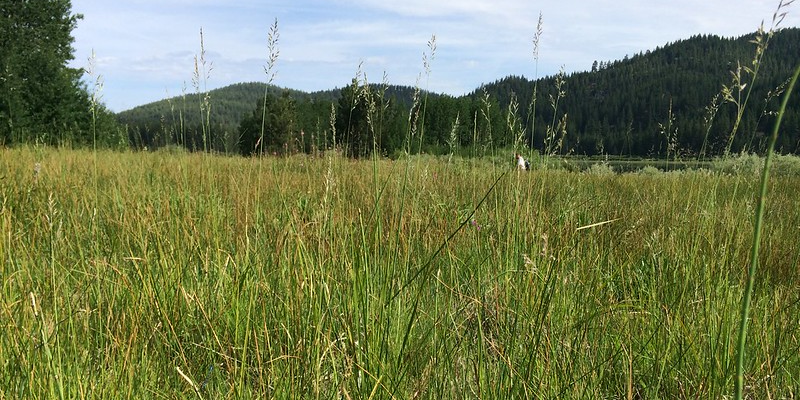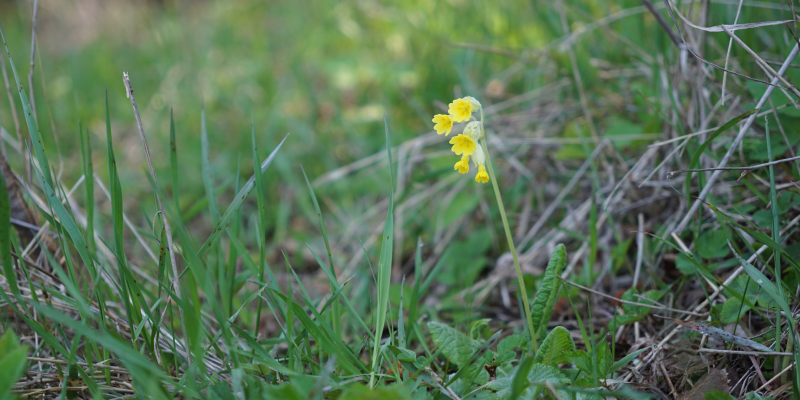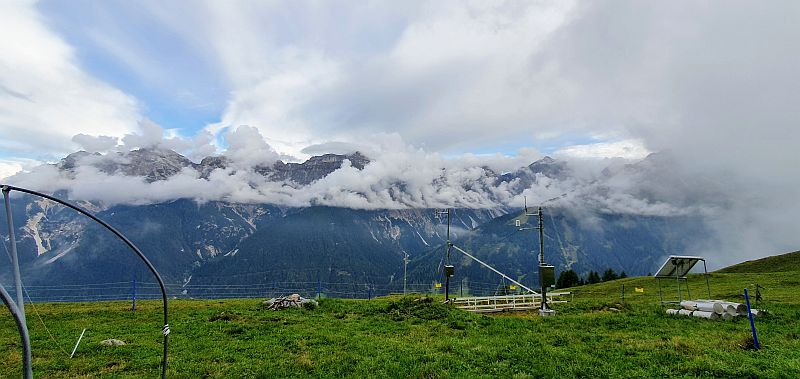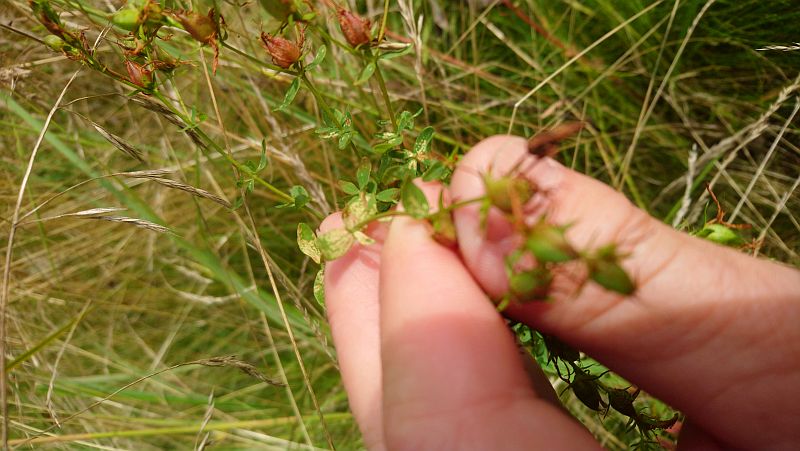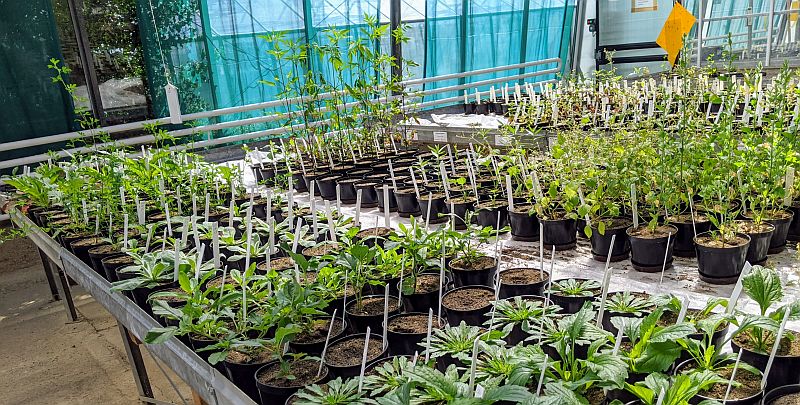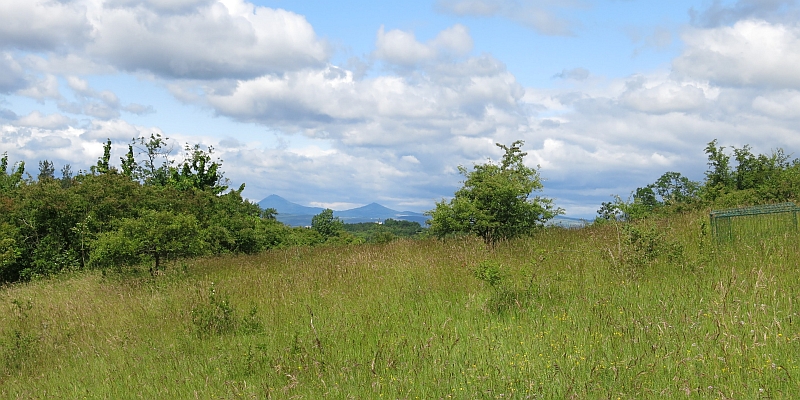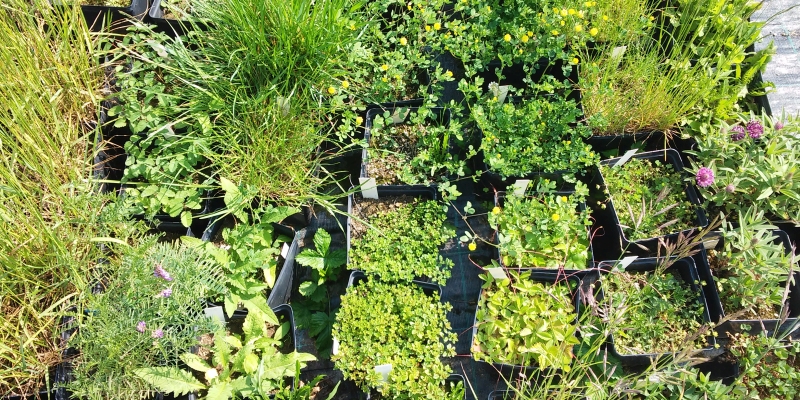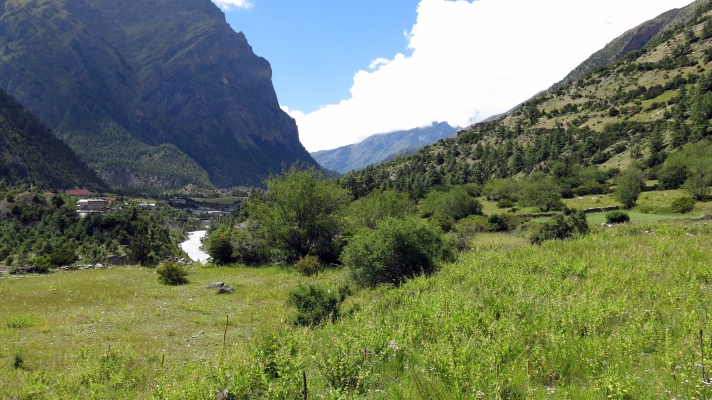01. Biotic interactions
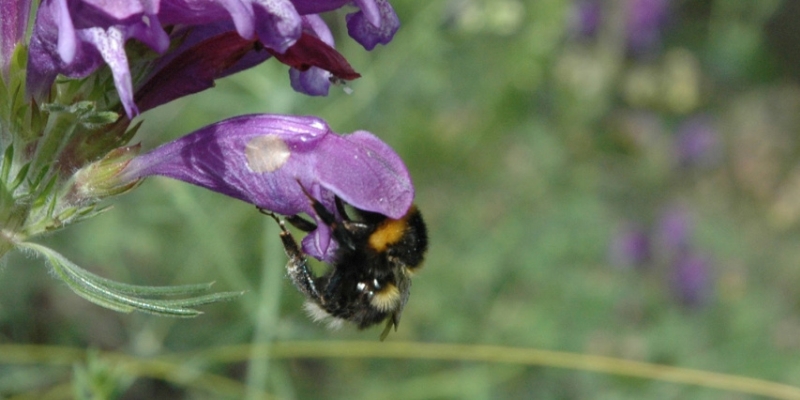
Biotic interactions
We focus on various plant-plant, plant-soil and plant-animal interactions. Plant-plant interactions include studies dealing with intraspecific and interspecific competition. Plant-soil interactions include studies of plant associations with arbuscular mycorrhizal fungi (AMF) and other soil microorganisms in controlled conditions as well in nature. Plant-animal interactions include impact of grazing on plant performance and plant adaptations to herbivory, impact of seed herbivory on performance of rare species and presence of pollinators and their ability to pollinate plants from grasslands and from tropical forests. One of the main research interest of our lab is studying intraspecific and interspecific plant-soil feedbacks and their effects on plant competition and on invasive success of plant species.Projects:
Recent papers on biotic interactions
in ‘t Zandt D, Kolaříková Z, Cajthaml T, Münzbergová Z (2023) Plant Community Stability Is Associated with a Decoupling of Prokaryote and Fungal Soil Networks. Nature Communications 14: 3736. https://doi.org/10.1038/s41467-023-39464-8...
ClimBioMemo: Understanding cold acclimation as a key process affecting species survival under changing climate (2024-2025)
Climate change will alter cold acclimation, a key process enabling plant winter survival in cold regions. This can consequently have adverse effects on plant population persistence. In this project, we...
read more...FuncNet – Improving the Functional Connectivity of Grassland Networks for Plant-Pollinator Interactions (2023-2026)
Loss in the area and connectivity of natural and semi-natural habitats in Europe over the last hundred years has placed not only numerous species under threat, but is also jeopardizing interactions...
read more...The importance of plant-soil interactions for plant response to ongoing climate change (2022-2024)
We aim to reveal whether plant-soil interactions affect plant responses to changing climate by studying interplay between climate, soil biota and plant adaptations in plant-soil feedback interactions. We use Festuca...
Zuzana Münzbergová, Dina in’t Zandt, Tomáš Dostálek, Vít Latzel, Věroslava Hadincová, Zuzana Kolaříková, Anna Aldorfová, Eliška Kuťáková, Mária Šurinová
The Bug-Network
We participate in a global collaborative research network that aims to assess the impact of invertebrate herbivores and pathogenic fungi on plant communities and ecosystems. The BugNet aims to collect...
read more...Plant functional traits as factors explaining intra- and inter-specific plant-soil feedback across species and genotypes (2020-2022)
Plant-soil feedback (PSF) is a relationship in which plants affect the soil, which in turn affects the growth of the plants. Despite the increasing recognition of the importance of PSF...
read more...Spatial variability in plant-soil feedback as an important driver of species co-existence (2019-2021)
Temperate grasslands have been shown to encompass the highest small-scale species richness world-wide, facing numerous threats. Low diversity sites are often occupied by one strong dominant species. Understanding the mechanisms...
Jana Rydlová, Petr Kohout, Jana Knappová, Tomáš Dostálek, Anna Aldorfová, Eliška Kuťáková, Zuzana Münzbergová
Determinants of local plant abundance: relative importance of fitness and stabilizing niche differences (2015-2017)
Coexistence theory views plant species abundance patterns as a result of species fitness differences (e.g., differences in competitive ability or fecundity) and of stabilizing processes. Species with higher fitness should...
Petr Dostál, Tereza Klinerová, Karolina Tasevová
Intraspecific plant-soil feedback as an explanation of plant invasiveness
Revealing traits responsible for plant invasiveness is one of the main topics in invasion biology. One of the factors that can affect plant invasiveness is intraspecific plant-soil feedback, i.e. the...
read more...Effect of climate change on plant-herbivore interactions along and elevational gradient in the Himalayan region (2013-2015)
Effects of climate change at high altitudes are expected to be more adverse in near future. In response to climate change, many organisms will have to move to higher elevations...
read more...


